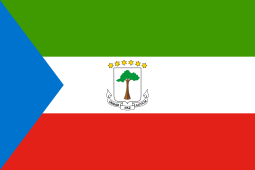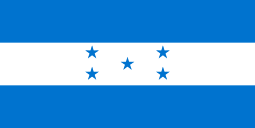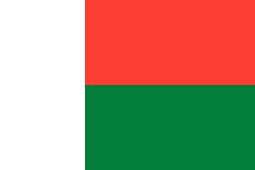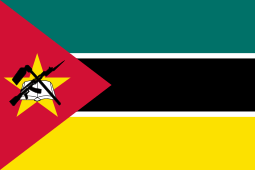Centrist Democrat International
| Abbreviation | CDI |
|---|---|
| Formation | 1961 |
| Purpose |
Christian democracy Integral humanism Interfaith dialogue |
| Headquarters | Brussels, Belgium |
Region served | Worldwide |
Membership | 73 |
Official languages | French, English and Spanish |
Chairman | Andrés Pastrana Arango |
| Subsidiaries | Youth of the Centrist Democrat International |
| Affiliations |
Christian Democrat Organization of America (ODCA) European People's Party (EPP) National Democratic Institute (NDI) |
| Website | idc-cdi.com |
| Part of a series on |
| Christian democracy |
|---|
 |
|
The Centrist Democrat International is Christian Democrat political international. Until 2001 it was known as the Christian Democrat International (CDI) and before that the Christian Democrat and People's Parties International (until 1999) (this earlier name is, since October 2000,[1] still sometimes used colloquially). It was formed in 1961 in Santiago, Chile[2][3] as the Christian Democrat World Union, building on the legacy of other Christian Democrat internationals[4] who tried to create a Christian-inspired third way[5] alternative to the socialist internationals; in 1982 it was renamed for the first time Christian Democrat International.[6] The name officially changed due to the participation of groups of various faiths.[7] It is the global international political group dedicated to the promotion of Christian democracy. Although it gathers parties from around the globe, its members are drawn principally from Europe and Latin America. Some of them are also members of the International Democrat Union (IDU), although the CDI is closer to the political centre and more communitarian than the IDU.
The CDI's European wing is the European People's Party, currently the largest European political party. Its Latin American equivalent is the Christian Democrat Organization of America. The Democratic Party of the United States of America maintains links with CDI through the National Democratic Institute for International Affairs. A youth organisation of the CDI is currently being established under the name of Youth of the Centrist Democrat International (YCDI).
Establishment history
- Dec 1925: First international gathering of Catholic-Christian democratic parties takes place in Paris and they establish the Secrétariat International des Partis Démocratiques d'Inspiration Chrétienne (SIPDIC).[8] Member parties were from Belgium, Germany, Italy, France, the Netherlands, Luxembourg, Austria, Switzerland, Czechoslovakia, Hungary, Spain, Portugal and Lithuania.
- 1939-1945: World War II suspends the operations of the SIPDIC.
- 23 Apr 1947: Political leaders from Argentina, Brazil, Chile, and Uruguay meet in Montevideo in order to create an international organization of Christian democratic parties. Representatives from Bolivia and Peru participate via diplomatic correspondence. The Declaration of Montevideo established the Organización Demócrata Cristiana de América (ODCA), although the name was not formalized until their second meeting in July 1949.
- 03 Jun 1947: Prompted at the suggestion of the Swiss a year prior to restart the SIPDIC, European Christian democrats formed the Nouvelles Équipes Internationales (NEI) in Chaudfontaine, Belgium. The NEI was open to non-Catholic parties as well as long as they ascribed to the principles of social democracy. They saw European integration as the best way to prevent the spread of communism into western Europe[9] and thus included exile groups from Bulgaria, Romania, Lithuania, Hungary, Poland, Czechoslovakia, and Yugoslavia to attend. The NEI also played a significant role in preparations for the Hague Congress and the eventual establishment of the European Coal and Steel Community.
- 26 Jul 1950: The Christian Democratic Union of Central Europe (CDUCE) is formed in New York City to assist Christian democratic parties in exile by organising forces in opposition to communism according to a constitutional charter. It worked with underground operatives in the Soviet bloc while simultaneously trying to coordinate efforts between European and Latin American Christian democratic parties by 1955.
- May, Jul 1956: The ODCA, NEI, and CDUCE meet for the first time in Paris at a gathering consisting of 33 delegations from 28 countries to discuss the creation of a global Christian democratic organisation.
- 1960: The three regional Christian democratic organisations establish the Christian Democratic International Information and Documentation Centre (CDI-IDC) in Rome in order to provide political analyses for Christian democratic parties around the world.
- 1961: The World Union of Christian Democrats (WUCD) is established in Santiago.[10][11]
- 1982: The WUCD changes its name to the Christian Democrat International (CDI).[12]
- 1999: The CDI changes its name to the Centrist Democrat International due to an increasing membership of non-Christian political parties. Since October 2000, some have also informally referred to the CDI as the Christian Democrat and People's Parties International.[13]
Member-parties of the CDI today also tend to be members of either the ODCA or the European People's Party (EPP; successor to NEI), although it is not required. Conversely, there may also be member-parties of either the ODCA and the EPP that are not member-parties of the CDI. The CDI also maintains a relationship with the United States through the National Democratic Institute.
Executive Committee
The CDI Executive Committee is the highest body of the organisation, formed by the president, the executive secretary and the vice-presidents.
The current president of the CDI is Andrés Pastrana Arango of Colombia, while its Executive Secretary is Spanish MEP Antonio López-Istúriz, who is also Secretary-General of the EPP[14]
The members of the Executive Committee are:
- Andrés Pastrana Arango (Colombia) – President
- Antonio López-Istúriz (Spain) – Executive Secretary
- Mário David (Portugal) – Deputy Executive Secretary
- César Maia (Brazil) – Vice-President
- Lourdes Flores (Peru) – Vice-President
- Michael Eman (Aruba) – Vice-President
- Mariano Rajoy (Spain) – Vice-President
- Juan Luis Seliman (Dominican Republic) – Vice-President
- Gonzalo Arenas (Chile) – Vice-President
- Naha Mouknas (Mauritania) – Vice-President
- Abbas El Fassi (Morocco) – Vice-President
- Edcel Lagman (Philippines) – Vice-President
- Mikulas Dzurinda (Slovakia) – Vice-President
- Viktor Orbán (Hungary) – Vice-President
- Peter Hintze (Germany) – Vice-President
- Jadranka Kosor (Croatia) – Vice-President
- Andrés Pastrana (Colombia) – Vice-President
- Luís Marques Mendes (Portugal) – Vice-President
- Wilfried Martens (Belgium) – Ex officio Vice-President (as President of the EPP)
- Jorge Ocejo Moreno (Mexico) – Ex officio Vice-President (as President of the ODCA)
- Carlos Veiga (Cape Verde) – Ex officio Vice-President
Member parties
Observer parties
-
 Belarus – Belarusian Christian Democracy (Беларуская хрысьціянская дэмакратыя, BChD)
Belarus – Belarusian Christian Democracy (Беларуская хрысьціянская дэмакратыя, BChD) -
 Brazil – Brazilian Social Democracy Party (Partido da Social Democracia Brasileira)
Brazil – Brazilian Social Democracy Party (Partido da Social Democracia Brasileira) -
 Bulgaria -
Bulgaria -
- Bulgarian Agrarian People's Union–People's Union (Balgarski Zemedelski Naroden Sajuz–Naroden Sajuz, BANU-PU)
- Democratic Party (Демократическа партия, DP-BG)
-
 Equatorial Guinea – Popular Union of Equatorial Guinea (Partido Unión Popular, PUP)
Equatorial Guinea – Popular Union of Equatorial Guinea (Partido Unión Popular, PUP) -
 Honduras – National Party of Honduras (Partido Nacional de Honduras, PN)
Honduras – National Party of Honduras (Partido Nacional de Honduras, PN) -
 Madagascar – Fanorenana
Madagascar – Fanorenana -
 Mozambique – Mozambican National Resistance (RENAMO)
Mozambique – Mozambican National Resistance (RENAMO) -
 Romania – Democratic Alliance of Hungarians in Romania (Romániai Magyar Demokrata Szövetség, RMDSZ)
Romania – Democratic Alliance of Hungarians in Romania (Romániai Magyar Demokrata Szövetség, RMDSZ) -
 Serbia – Christian Democratic Party of Serbia (Демохришћанска Странка Србије, DHSS)
Serbia – Christian Democratic Party of Serbia (Демохришћанска Странка Србије, DHSS) -
 Slovakia -
Slovakia -
- Party of the Hungarian Coalition (Strana maďarskej koalície, SMK-MKP)
- Christian Democratic Movement (Kresťanskodemokratické hnutie-BG, KDH)
See also
- Christian Democrat Organization of America
- European People's Party
- International Democrat Union
- Liberal International, an equivalent liberal organisation
Notes
- ↑ Towards an era of development, Peter Van Kemseke, page 172
- ↑ EPP-ED Chronology - 1961-1970 Archived July 22, 2011, at the Wayback Machine.
- ↑ But the creation of the org was only formalized in 1964. See Towards an era of development, Peter Van Kemseke, page 172
- ↑ EPP-ED Chronology - 1925-1950 Archived July 22, 2011, at the Wayback Machine.
- ↑ The Christian Democrat International, Roberto Papini, page 32
- ↑ Dialogue on Globalization, Occasional Papers, New York, page 23
- ↑ PGMA calls on Christian Democrats, religious leaders to lead crusade for peace, prosperity : Philippines : Gov.Ph : News Archived September 30, 2007, at the Wayback Machine.
- ↑ EPP-ED Chronology - 1925-1950 Archived July 22, 2011, at the Wayback Machine.
- ↑ The Christian Democrat International, Roberto Papini, page 32
- ↑ EPP-ED Chronology - 1961-1970 Archived July 22, 2011, at the Wayback Machine.
- ↑ But the creation of the org was only formalized in 1964. See Towards an era of development, Peter Van Kemseke, page 172
- ↑ Dialogue on Globalization, Occasional Papers, New York, page 23
- ↑ Towards an era of development, Peter Van Kemseke, page 172
- ↑ Organization page on the official CDI website Archived March 27, 2012, at the Wayback Machine.
- ↑ Parties, Centrist Democrat International, idc-cdi.com, retrieved 31 August 2016.
Literature
- Papini, Roberto (1997). The Christian Democrat International. Rowman & Littlefield Publishers.